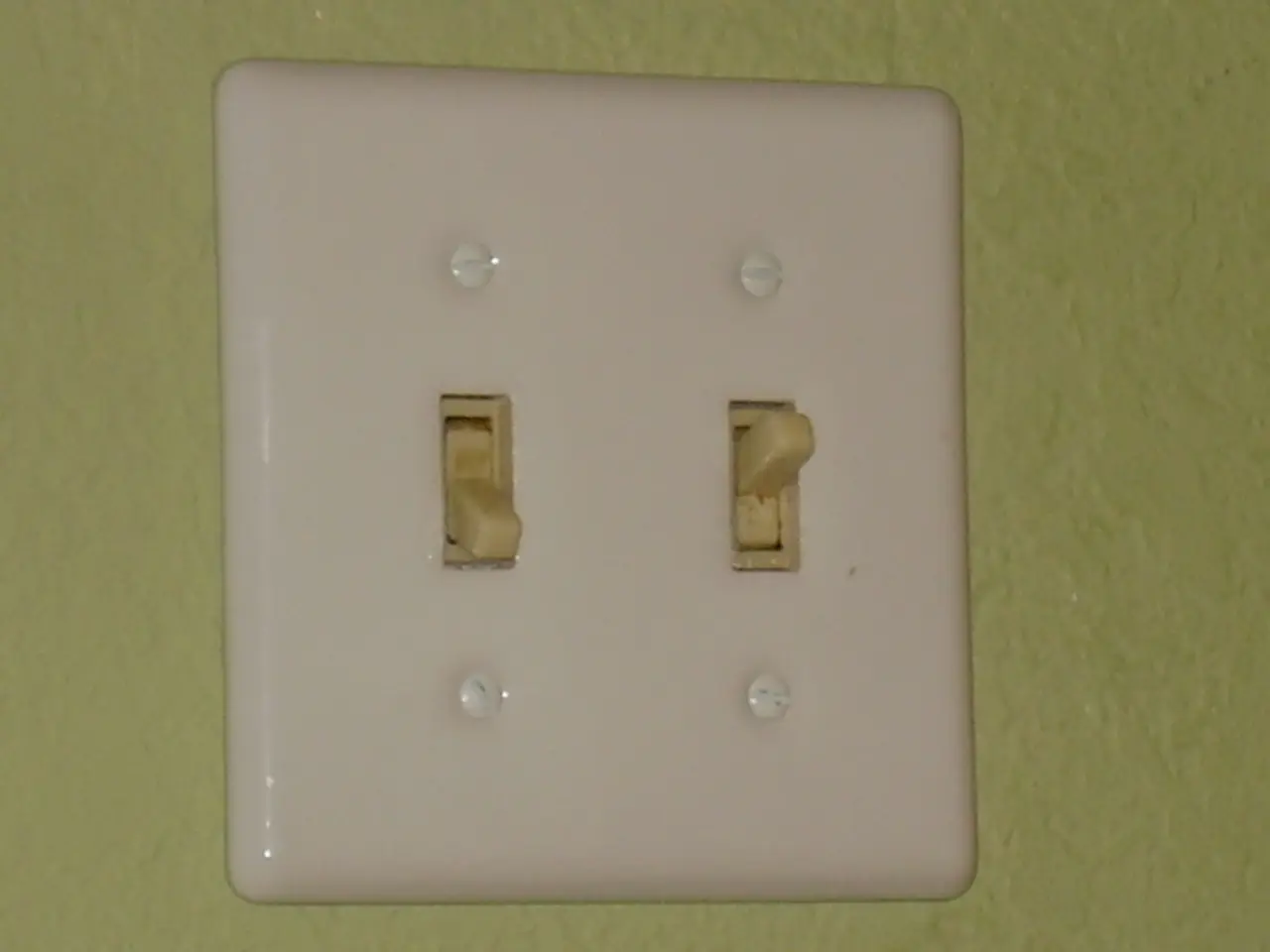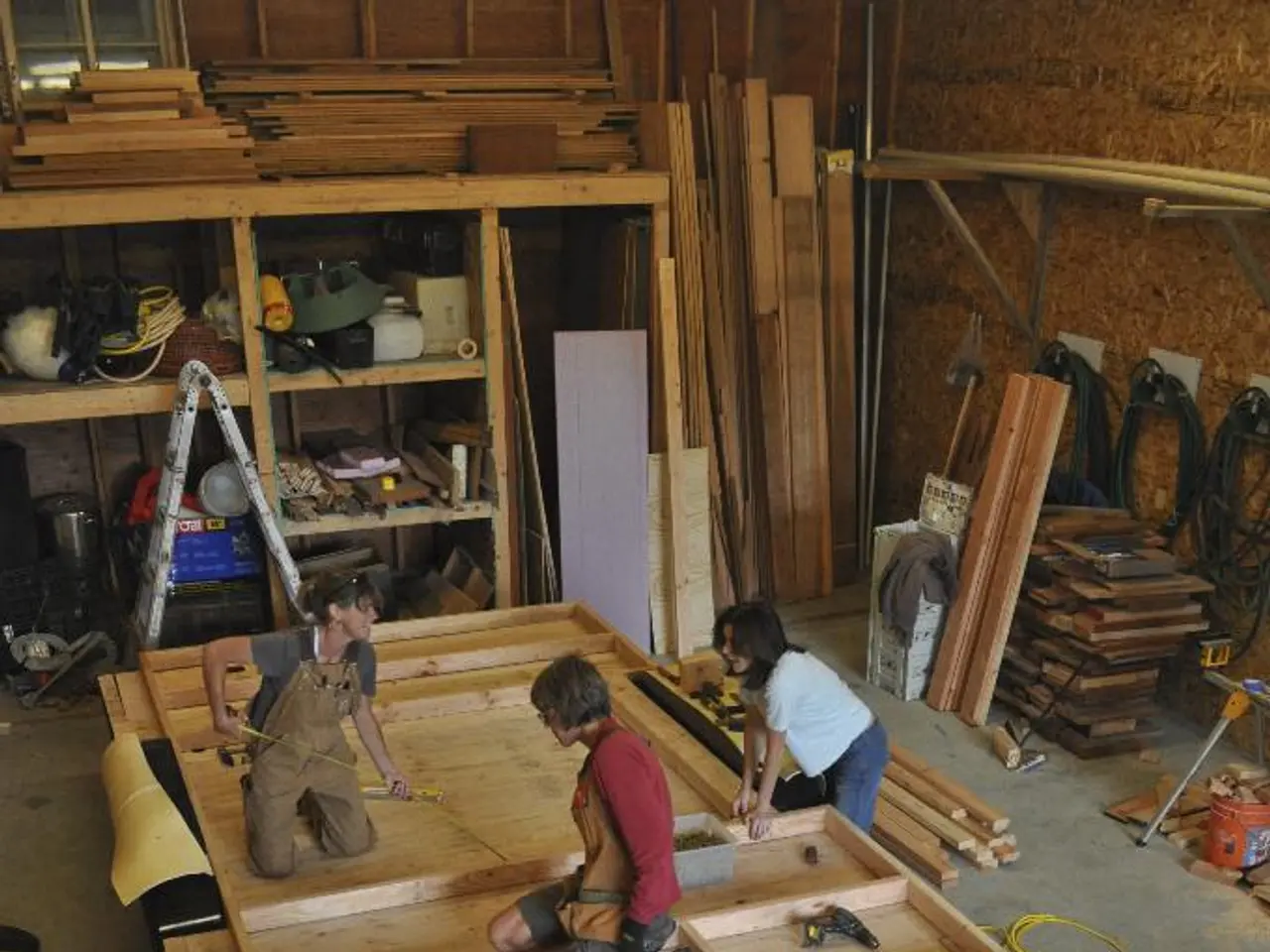Climate-tech partnerships: a look at the introducers - First Installment
In the rapidly evolving landscape of renewable energy, a growing number of startups are making significant strides in addressing the challenges that hinder the connection of clean energy supply with consumers.
Mohamed Gaafar, co-founder and CEO of GRYD Energy, asserts that solar energy is no longer just an environmental choice for home buyers; it's a financial one. Gaafar's company, along with others like Granular Energy and Allye, is innovating in the areas of energy management, grid integration, and decentralized solutions.
One of the key challenges in this sector is the limited transmission and distribution capacity. In places like New York, for instance, insufficient transmission capacity impedes the integration of new renewable projects, despite strong resource potential. Upgrading infrastructure is costly and complex, with unexpected retroactive scope changes increasing expenses and project delays.
Another hurdle is the energy storage limitations. The variability and intermittency of solar and wind generation often outpace current storage capacity, undermining grid reliability.
Regulatory instability and resistance also slow down the deployment and infrastructure upgrades. Frequent regulatory changes and resistance to renewables among stakeholders create barriers that hinder progress.
High costs and funding gaps further complicate the transition to clean energy. The capital costs of renewables and grid upgrades, combined with insufficient funding for engineers and developers, create financial hurdles that are difficult to overcome.
However, startups like GRYD Energy, Allye, and Granular Energy are addressing these challenges. They facilitate smarter grid management and energy forecasting to optimize the use of limited transmission capacity. They deploy distributed energy resources like mini-grids, solar home systems, and off-grid renewables to serve rural and underserved communities, reducing pressure on centralized grids.
These startups also create platforms for energy trading, demand response, and storage integration to better balance supply and demand dynamically. They streamline interconnection processes and lower costs through digital tools.
For example, decentralized renewable solutions, such as those promoted by initiatives in Sub-Saharan Africa, demonstrate how mini-grids and off-grid systems can overcome transmission constraints and expand access equitably.
Financial foundations of these climate-tech startups are primarily built on early-stage venture capital. As they move up the financing ladder, institutional investors are expected to play a larger role.
A survey conducted by a website asked investors to nominate start-ups commercialising climate technologies. Among the nominated start-ups, Granular Energy is attempting to replace Power Purchase Agreements (PPAs) with its certificate management platform, effectively establishing hourly clean energy markets.
Jonathan Carrier, co-founder and CEO of Allye, mentions that the average transformer in the UK is 63 years old and was built for a different energy system. Allye aims to address grid constraints and claims to reduce energy costs by up to 70% with its Allye MAX storage solution.
GRYD Energy's solution, according to Gaafar, allows developers to save up to £10k in hardware costs per home and enables homeowners to reap the bill-saving benefits of solar from day one.
Eleonore Lazat, the commercial director of an unspecified company, states that their solution provides hourly tracking and management for renewable energy.
Government estimates suggest that over 50% of the UK's electricity has renewable roots, a level not seen since the 1950s.
While specific details about the approaches of these startups are not widely available, their innovative solutions are poised to bridge the gap between renewable supply and consumer demand, making clean energy not just an environmental choice, but a financially viable one.
- Solar energy, once considered primarily an environmental choice, is now being seen as a financial choice by home buyers, thanks to the innovative solutions and cost-saving measures offered by startups like Mohamed Gaafar's GRYD Energy.
- The challenge of limited transmission and distribution capacity in integrating new renewable projects is being tackled by startups, with smarter grid management and energy forecasting solutions that optimize the use of available transmission capacity.
- In the realm of finance and investing, climate-tech startups are gaining traction, with early-stage venture capital forming the financial foundation. As they grow, institutional investors are expected to play a significant role in their financing.




